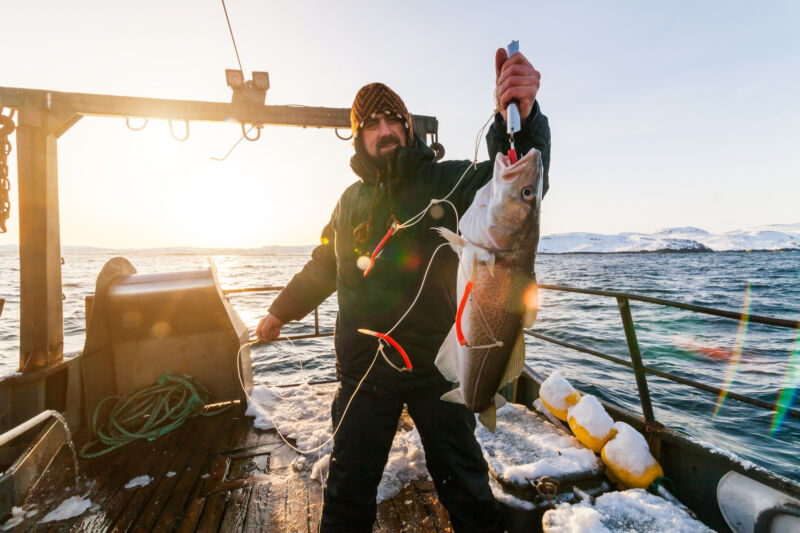North Sea cod are getting smaller—can we reverse that?

Enlarge (credit: Anton Petrus)
Generation over generation, catch after catch, fishing changes fish evolution. This phenomenon, called fisheries-induced evolution, is well documented, though it impacts the myriad species of fish differently. For the North Sea cod, it has meant that early bloomers thrive, while fish that are slower to mature get taken out of the gene pool. This has meant that the fish population is evolving toward smaller sizes. A recent paper models what it would take to reverse this effect through conservation, and what it would mean economically to do so.
In general, fishing is one of the main drivers of change in marine ecosystems," Hanna Schenk, a postdoctoral researcher at the German Centre for Integrative Biodiversity Research (iDiv) Halle-Jena-Leipzig and one of the paper's authors, told Ars.
Fishing increases mortality rates among fish-particularly large fish, which are caught in higher numbers because they are more likely to stay within fishers' nets. In turn, this puts selective pressure on a species: fish that mature quicker (but remain smaller) gain an advantage. These smaller, early bloomers then pass on their genes more often, which impacts the whole population over time.